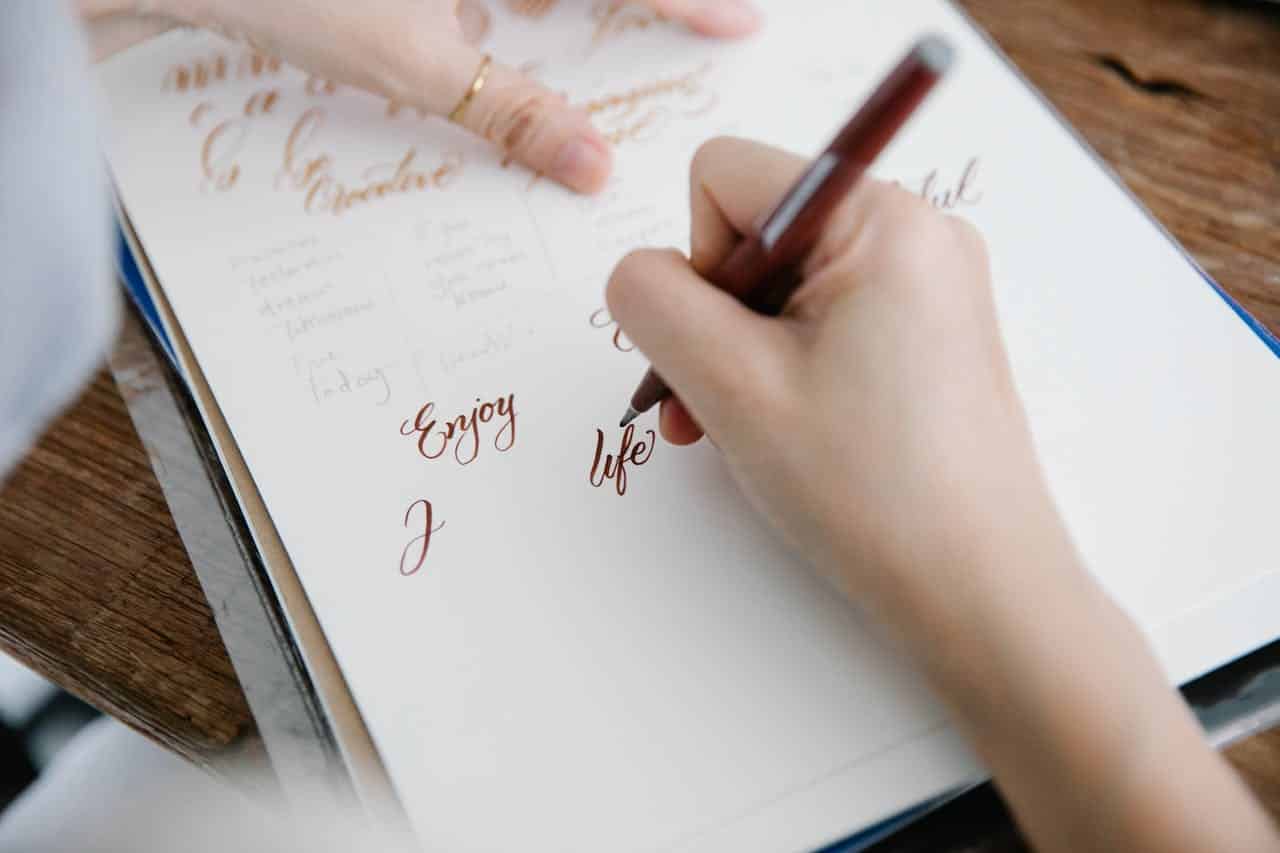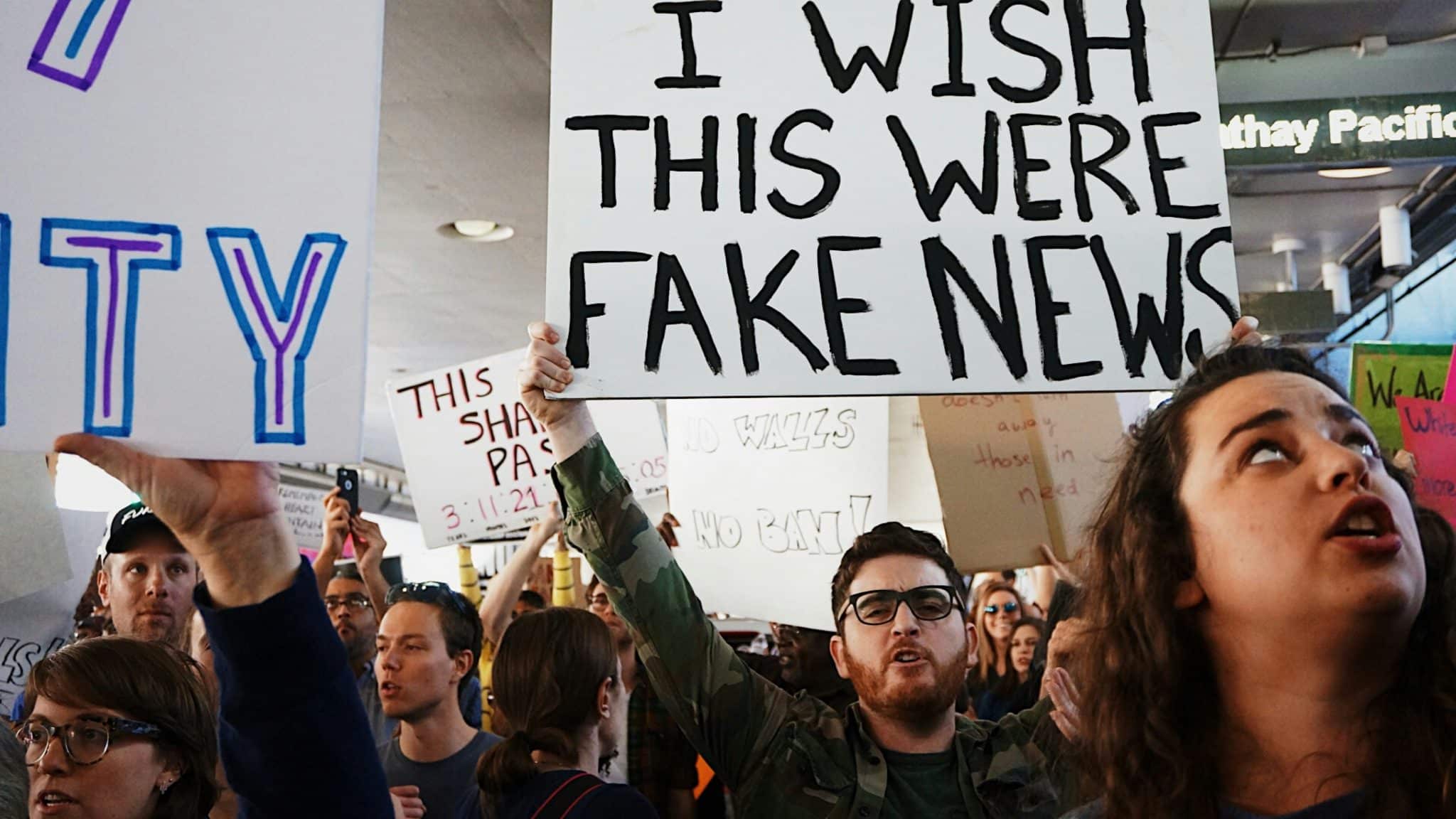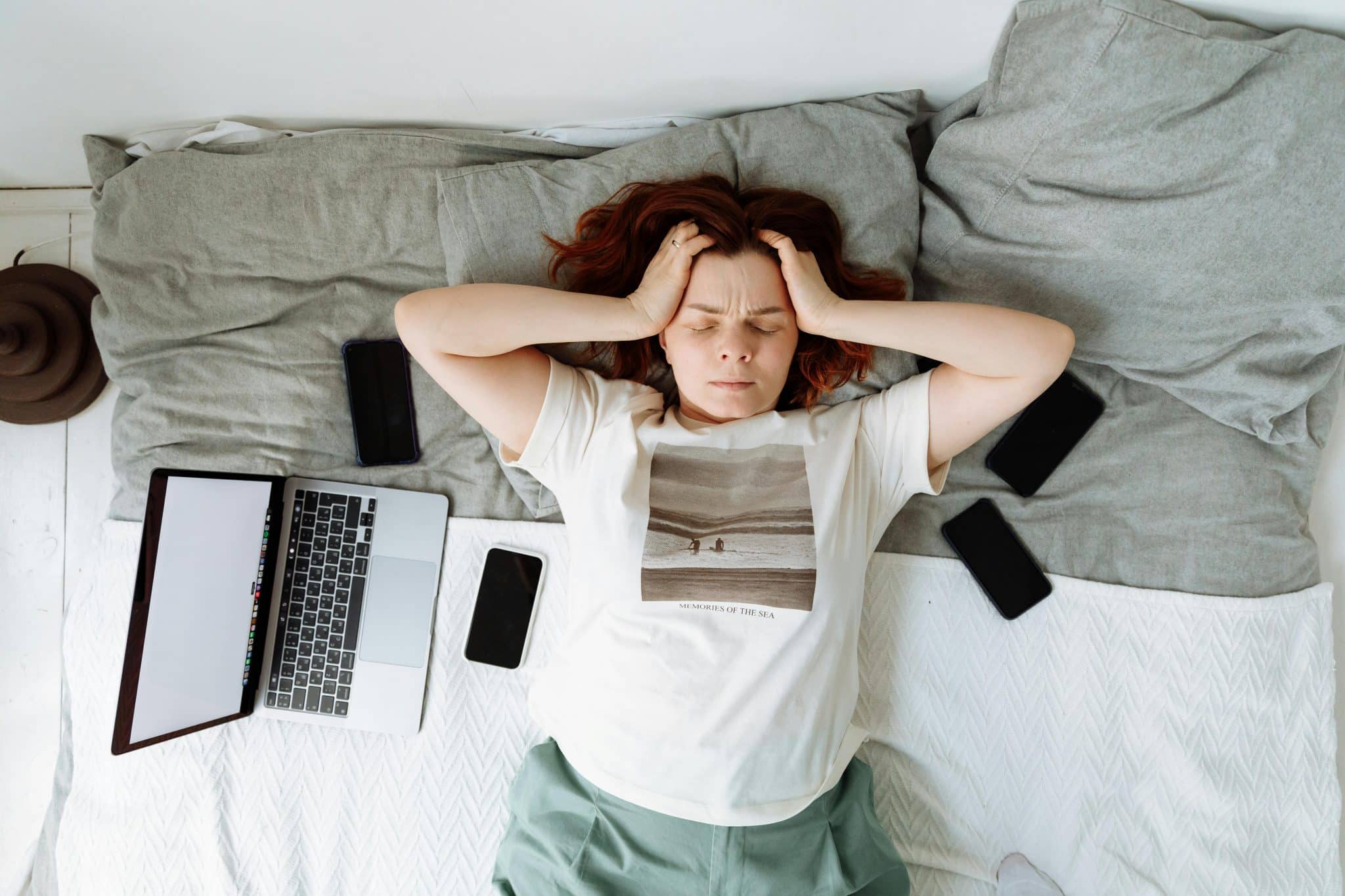Cartoonist Colleen Doran on Productivity, Procrastination, and Setting Boundaries for Focus

At Freedom, we love our users – not just because they use our product, but because they’re cool – cool people working on cool stuff. Academy Award-nominated screenwriters, best-selling authors, editors, developers, cartoonists, star TV actors, academic researchers, explorers, and entrepreneurs – the Freedom community is packed with curious, creative, and efficient go-getters. We love to share their stories and advice, because how better to learn about productivity than from the productive?
Meet Colleen Doran.
Colleen Doran is the NYT bestselling artist for the Neil Gaiman graphic novel Troll Bridge, and Stan Lee’s autobiography Amazing, Fantastic, Incredible Stan Lee. She has illustrated a wide array of projects including Amazing Spider-Man, The Teen Titans, Wonder Woman, Gotham City Garage, Scooby Apocalypse, Captain America, Superman, Sandman, and Guardians of the Galaxy. Doran’s A Distant Soil was published by Image Comic’s Shadowline imprint. Vector: The Journal of the British Science Fiction Association declared it “groundbreaking science fiction comics…ahead of its time.” Doran created the series when she was 12 at a time when women artists/writers rarely had autonomy over their material. She does all creative work, including the lettering, by hand.
Colleen has also worked as a lobbyist for creator rights and served on the advocacy committee of the Graphic Artist Guild. She spoke in Washington DC to Senators and Congressman and participated in lectures on copyright and digital policy at the Newseum.
With a wealth of experience under her belt, we decided to sit down with Colleen this week to learn a little more about what it takes to be a creative in our increasingly digital and distracting world.
How did you become the cartoonist, illustrator, and writer that you are today? What were some of the steps you took along the way?
I just did it, no awareness that I wouldn’t get it if I went for it. I won a Disney art contest when I was 5 and started doing superhero art when I was 10, because I loved the Super Friends cartoon. When I was 12 I got really sick and a family friend gave me this huge box of comics to read. Even though I’d read comics before that, they were hard to get when I was a kid, so I thought I’d won the lottery. I was hooked! I decided to be a cartoonist. I sent out story submissions and samples right away. Got my first rejection letter from Random House at 12, and the editor was very kind and encouraging, so the rejection didn’t bother me a bit!
I went to a science fiction convention, and it had an art show. I ran right home, got a bunch of my art, and my mom did a rush frame job. All of my art sold at my first show! I was so excited. A lady I met there had an advertising agency and she hired me. She says I was 14, but I’m pretty sure I was 15. But that connection resulted in my first published commercial work.
I sent my art to agents who took my work to conventions for me because I was too young to travel. My work got published in fanzines. Then Keith Giffen, a very well-known creator on a book called The Legion of Superheroes saw my work in one of those fanzines when I was around 17. He offered me an audition at DC Comics. I didn’t get hired right away. I was reluctant to try. I didn’t think I was good enough. But shortly after, my work was seen in small press comics, and the big leagues offered me jobs. I’ve been a full-time comics artist ever since. And I’ve been friends with Keith Giffen ever since. We work together to this day.
What advice would you offer less experienced creatives – especially in regard to staying productive, motivated, and focused?
Learn to say no and mean it. Establish boundaries and keep them. Accept that some think choosing the art-centered life means that you are making a trivial, or selfish choice. The pursuit of your dreams may make them feel badly that they didn’t pursue their own dreams to a successful end.
When other creators are not doing well they can be pretty passive aggressive about taking that frustration out on colleagues. If things aren’t going well on their book, they will be at the door begging you to go out to lunch or have coffee when you’re trying to focus on your own work. They want partners in their search for distraction.
Think about what you will gain and what you will lose if you do not sit your butt in that chair and do that book. Think about what your life will be like in 5 years, 10, years, 20 years if those dream projects you claim you want to create more than anything in the world keep dying from a daily dose of “Tomorrow”.
Procrastination is death by a thousand nothings.
When/where are you most productive? Do you have a routine or ritual that gets you into your most productive state?
I am trying some new things to reshape my work routine so it’s in flux right now. Until a few months ago, I was unable to work most mornings because of health issues: but now I’m getting up early. Exercise in the morning is best, but I often do short bursts of exercise throughout the day. I like to do gardening in the morning when it’s cool, and it puts me in a good mood.
I block my graphics computer from social media for about 23 hours a day. Sometimes I block internet use entirely. I do most of my best work in the evenings, and often work until midnight to 1 AM.
I went to Scotland for a few weeks last year and the total solitude on the Isle of Skye (it had lousy internet, so no goofing off,) saw me break through a block on a story I’d been struggling with for ages. I’m trying to recreate that level of focus every day here in my studio.
Productivity for me pretty much boils down to silence and no internet.
As an artist who works from home, what are the challenges you face staying self-disciplined and motivated?
Being your own boss has so many advantages, principal among them – never having to commute! Saves me hours of effort every week.
But if you don’t stay focused, you can lose every minute of that advantage, and more.
I live in a very rural area. Country living is amorphous. We’re so disconnected we had to get a clock with the days of the week on it! There is no regimentation: you have to push yourself from the inside rather than having urgency imposed from the outside.
I have to be especially careful about my time management because I spent years dealing with a form of auto-immune disease that gave me a cognitive disorder. It’s recently been addressed and treated, so it’s not really an issue at this time, but I have to unlearn a lot of habits and work patterns I developed when I was not well. I thought it would just be a matter of stepping back into my old life before I got sick. But you live a certain way for ten years, you have to unlearn a lot of behaviors.
At what point did you realize that tech/apps/sites were taking a toll on your productivity and time? Or, when did you know that you had to do something about it?
As I mentioned before I have an auto-immune disorder that caused cognitive issues. It developed gradually over many years. I didn’t even realize it was happening at first. I began to have trouble focusing and remembering things, which was bad enough, but if I went on the net, I would endlessly click buttons and not be able to get back to work. I was completely unaware of time passing. By all accounts, it feels a lot like ADHD.
Even if I used a timer, I would fiddle right through the timer. My judgment was impaired, I felt anxious and stressed, the internet made me more anxious and stressed, and then I’d spend more time on the internet. The more time you spend on the net, the harder it is to get back to work, to even remember what you’re working on. It’s kind of awful, especially when you don’t realize what’s causing it.
I’d always been very focused, very schedule-oriented – a real workaholic. I had no idea where this self-destructive behavior was coming from.
It was a struggle, and I tried one app after another, one trick after another, even going so far as to have my family remove my ethernet cord at times. I’d waste so much time and get so distracted and frustrated.
When the doc finally figured out what was going on and I got treatment, the brain fog dissipated. I can concentrate again, I focus better. But I dealt with this thing for years, and the habits became ingrained. I’m having to relearn positive, more productive behaviors.
It’s the nature of social media to make it easy for people to get caught up in it. It’s designed that way. But people with cognitive disorder issues are really susceptible. I was horrified when I started to keep track of my net time and saw how much was going into unproductive behaviors that exacerbated my symptoms.
It’s easy to tell someone with the problem to just turn off the machine. Not so easy for someone with the problem to do it when their livelihood depends on being online.
It’s one of the things I love so much about the Freedom app. It had the features I needed to control my net use. It was cross-platform, handled all my tech, worked on all my browsers, and wasn’t easy to turn off. In a matter of days, my work output increased, my social media use plummeted, and I felt like I was being let out of jail.
I don’t have issues with anything about the net except social media. Limiting it with Freedom eliminates my problem.
Every publisher in comics could do themselves a big favor by buying their creators the Freedom app. Productivity would go up like a shot.
I love social media. It’s great. I promote my work and my fans love it and I stay in touch with my colleagues all over the world. Publishers encourage it because they get sales promotions they don’t have to get the marketing department to do. I’ve even gotten some really great lucrative assignments and made wonderful connections via social media.
But it can eat your brain.
What is the biggest mistake you have learned from as a creator?
Not being better with boundary-setting, and not trusting my own judgment. I got into the business as a child, and I met so many people who were extremely aggressive about meddling with my life and work. My gut instincts told me to cut them, but what did I know?
My instincts were right.
Believe your gut.
What excites you most about your industry?
Never a better time in comics! So many cool projects, so many cool creators, so much to admire and be proud of. Respect for the medium is at an all-time high, and creator-owned work can pay in a way that was almost impossible for most artists 15 years ago.
Corporate work is always there, of course, and I love working on projects like Wonder Woman, too. But I also love knowing I can go and do something just for me, something that doesn’t have to sell like Batman, and it will be financially rewarding and fulfilling.
The internet makes it possible to finance projects that could never get off the ground before. I use Patreon, there’s Kickstarter which I hope to try sometime, Indiegogo. So many options to create, market and finance work.
What resources or tools do you use daily and have found most beneficial to your working process?
I use Freedom, of course, but I also use Rescue Time to track my activity, which helps a lot.
I can draw for hours if I’m working with a good audiobook running. I get up and take short breaks when I move on to a new chapter. I sometimes listen to motivational programs as well. When writing, I don’t listen to anything, not even music.
I use f.Lux for Mac to dim my screen light so I can write at night without inducing insomnia. I try to avoid doing computer graphics before bed, though analog art is fine. If I have to stay up late working on a digital painting or something, I can just disable f.Lux for a while. But the screen does induce wakefulness, I try to time my art tasks to work around that issue.
I also find posting about my work process to my readers keeps me on my game. It creates leverage. People are watching, they expect me to live up to my own standards. If I say I’m going to do something, thousands of people expect me to do it. That’s worse than having an editor on your case!
What project are you currently most excited about?
I’m working on several projects, including a new webcomic with the fantastic writer Warren Ellis for Line Webtoon. It’s entitled Finality. It’s a dark detective story with two hardcore female leads. It’s not out yet, but it is turning out so well, I’m very happy with it! It’s a different style for me, and I’m doing all the art, including color.
I’m also working on another project for Top Cow at Image Comics with a wonderful young writer named Matt Hawkins. Science fiction entitled The Clock. It’s drawn in a very different style from Finality, and it’s fun to be able to work on projects with such wildly divergent styles.
Then there’s a graphic novel I can’t talk about yet, but it’s with one of my favorite writers. And the final chapter of A Distant Soil, my epic space opera for Shadowline at Image Comics. I’m financing it on my Patreon. Finishing this monster is the hardest things I’ve ever done in my life! I’m so proud of it, but what an odyssey!
I have several other smaller assignments and other projects for next year that have not been announced.
Running quite late after dealing with health issues, so sticking to my work, managing my time, that’s never been more important to me!
How do you find a balance between being connected and overwhelmed?
I know what my limit is. I figured out a long time ago that I can’t spend more than about 15 minutes on social media, or I get so distracted, I’ll spend an hour online. Or two. And I have trouble with work after, because I feel stressed. I feel pressure. I use Freedom to take the option away from me and the stress evaporates.
Now I pop in, get a quick read, post something, and then pop back out and get back to work. I set timers to keep me on a schedule. I block social media from my phone from 8 AM to 1 AM.
Whenever I let these limits slip, I pay for it. I never want to spend another sleepless night catching up on a deadline because I let something derail me on twitter.
What do you do outside of your work routine that helps you stay productive?
I have an elliptical machine and a weight bench in my office. I take walks. I putter in the garden, sometimes several times a day.
On nice days, I just take my laptop and go sit on the porch and work.
As someone who has had some pretty rough health issues over the years, no one knows more how important good health is to productivity. I intend to do whatever I have to do to keep this chassis rolling.
Back pain, arm pain, very common for artists. I do these great stretching exercises that stopped cubital tunnel syndrome in its tracks. I do workouts with weights for my back and use a rowing machine.
I read and draw every week for pleasure. And I make sure I pay attention to what good things my colleagues are doing. It’s important to be generous with your attention, and happy for others when they do well. It’s also humbling, keeps me on my toes!
Where are you currently based?
On a mountain in rural Appalachia, which is as heavenly as it sounds. While typing this, I saw a beautiful deer just walk past my window.
To learn more about Colleen or her work, visit her site at colleendoran.com




